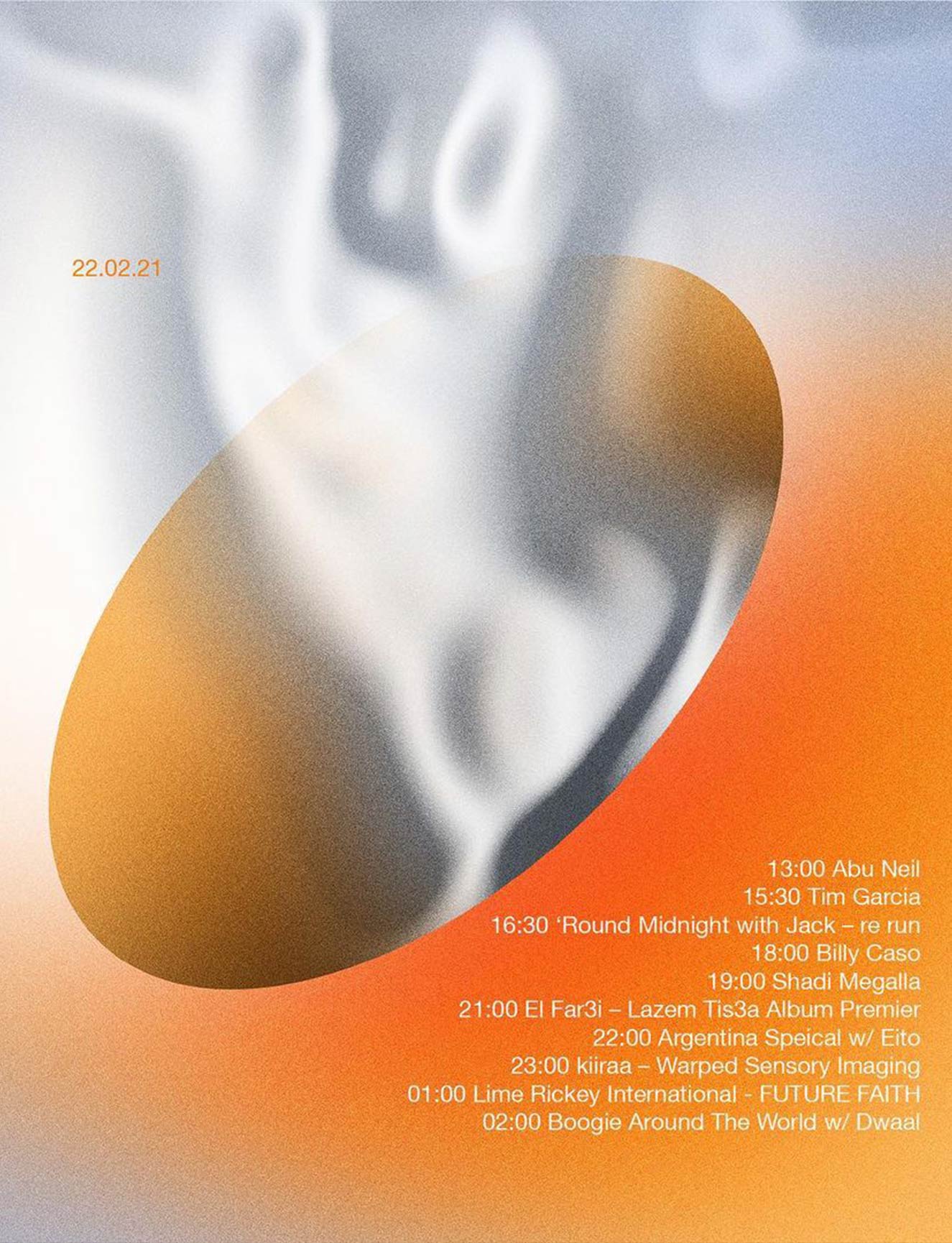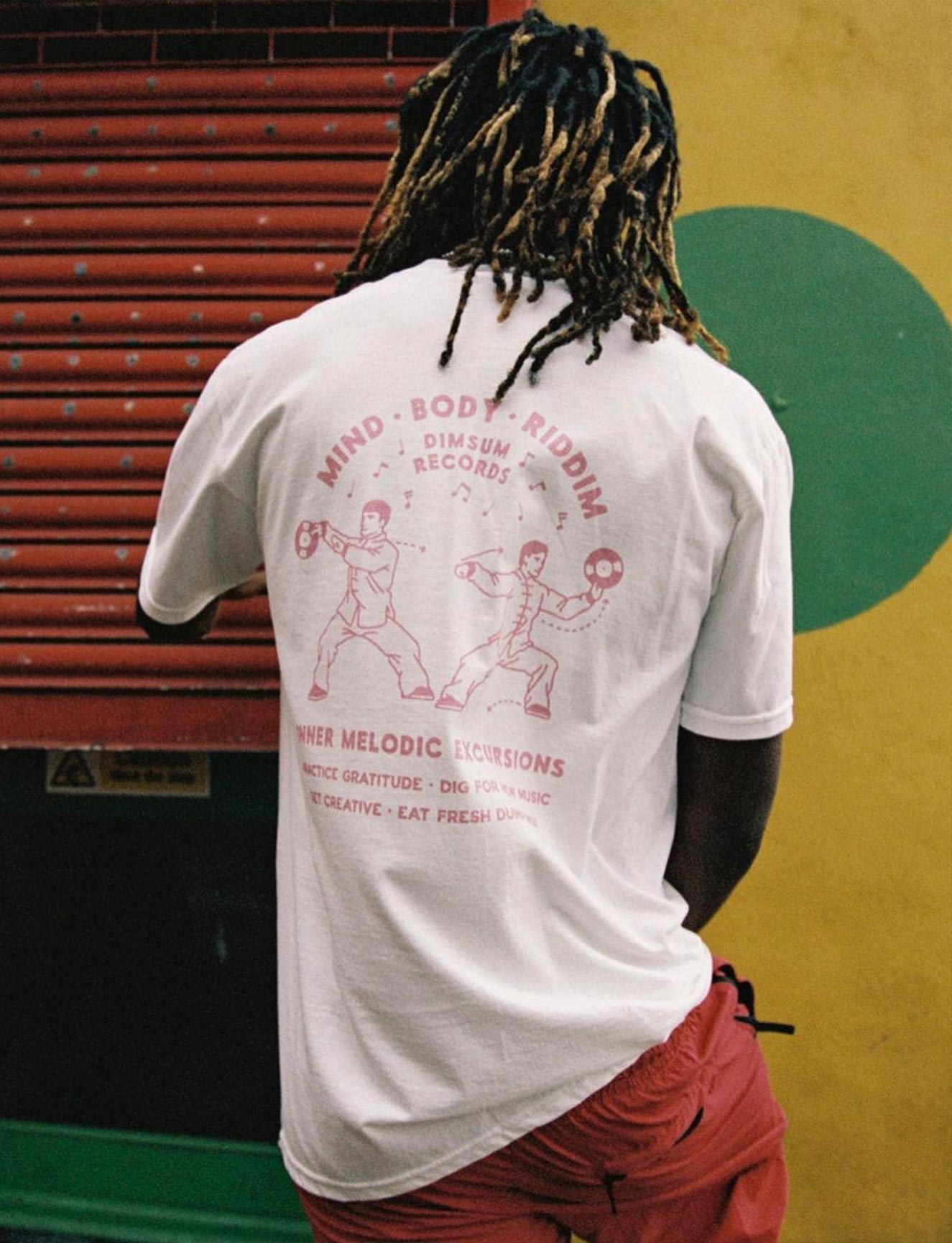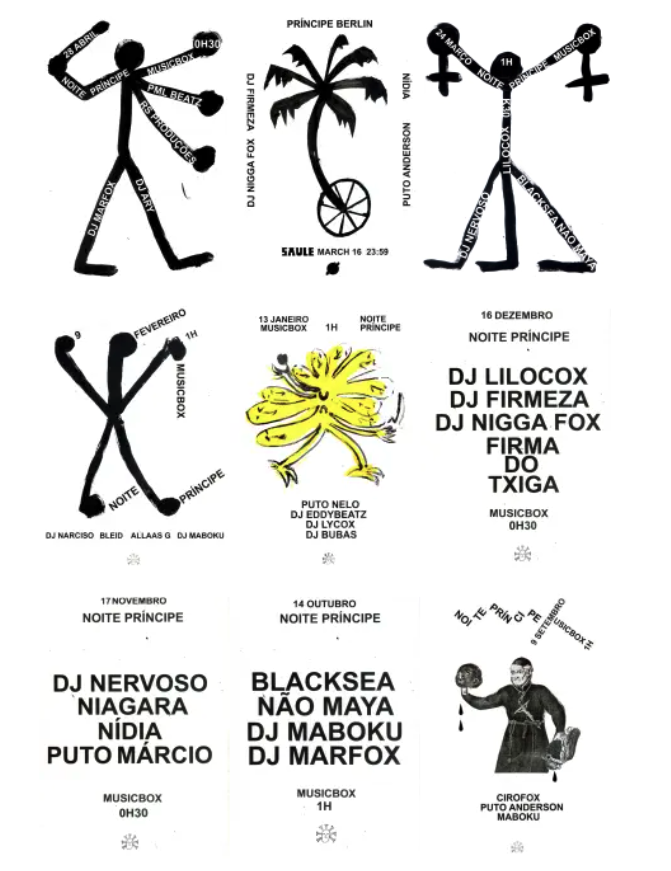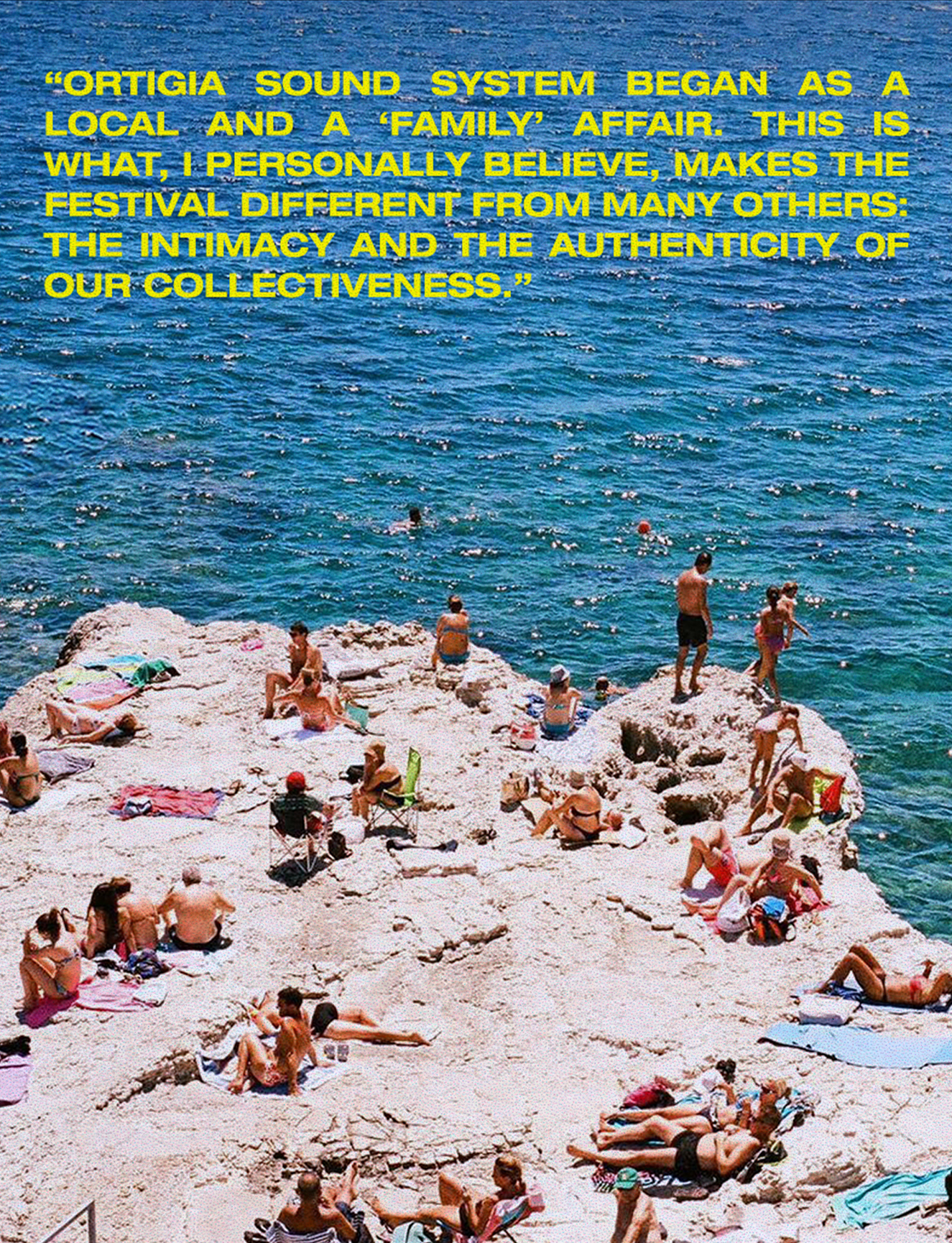DECLUSTERED PRACTICES
Radio Alhara was born out of the impulse to collaborate on a multifaceted project that spanned the group’s chaotic array of interests, pursuits and disciplines. As Elias put it, “Several different things link myself and Yousef to Saeed and Mothanna; it’s related to design, it’s related to culture, it’s related to music, and the fact that we, our studios, are multidisciplinary in a certain way, not just within one specific discipline. We share these really kind of declustered practices.”
It really became a huge family
At its core then, Radio Alhara is simultaneously a celebration of difference, and of the overlap between seemingly unconnected fields. And this notion of a platform that’s multifaceted, that can’t be pegged as just one thing, extends to its collaborative ethos too. With several people working closely on it, as well as a wider vast global network of contributors, it has the fruitfully multifarious energy that runs through every project that’s the work of many people. “I think the richness of this project is that it really became a huge family,” said Mothanna. “The real power of it is that everyone is just contributing because it’s building up something. So there’s no money equation in the whole project, it’s entirely based on contributions and a certain number of hours that we can dedicate as programmers.”
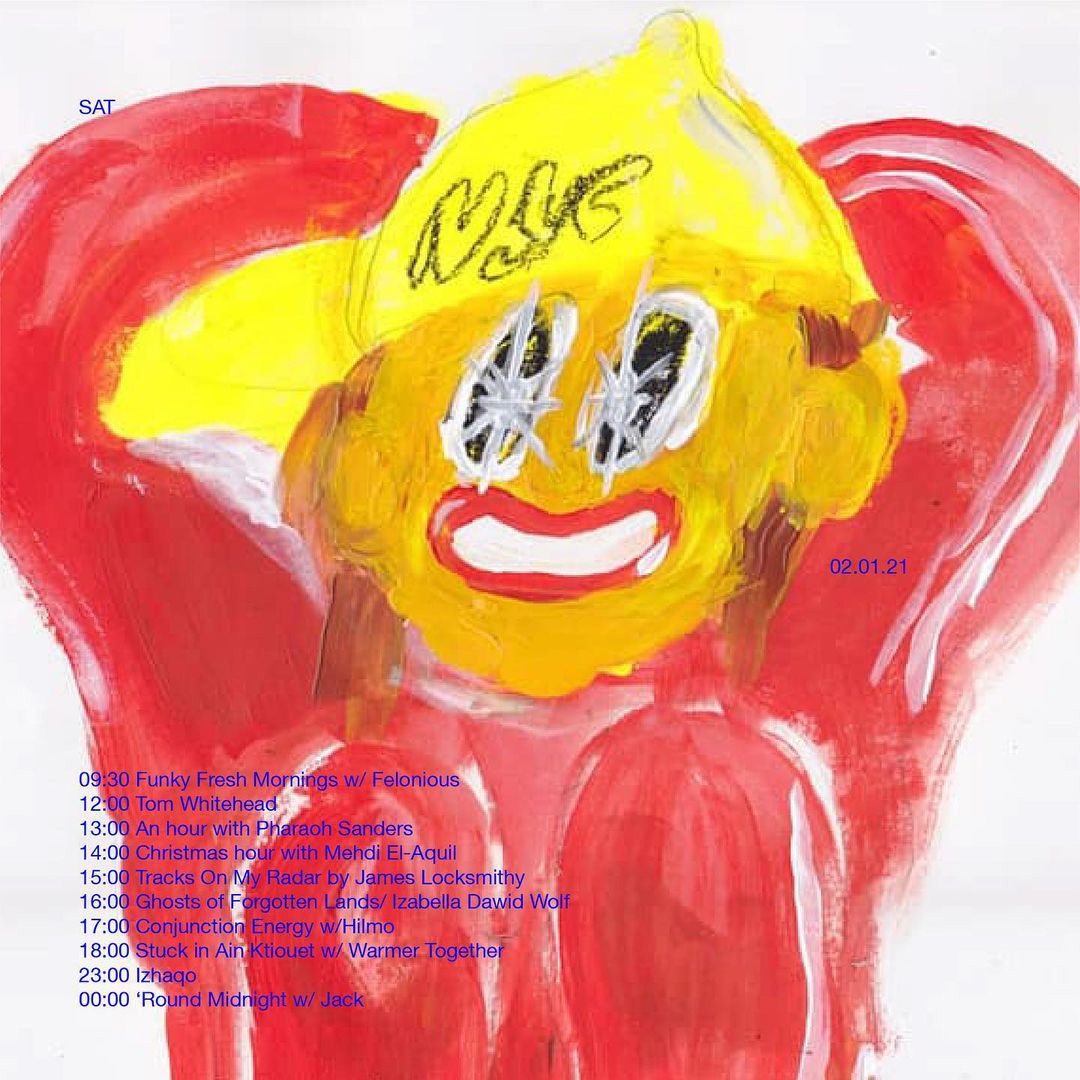
OPEN CURATION
When it comes to what exactly the station will play, the remit is super broad; when they first launched they even accepted all mixes through dropbox, with anyone able to submit. Now, it’s a little more structured, mainly because they were so inundated with submissions: “We were getting mixes and we couldn’t tell who they were sent by, we can’t find the people’s Instagram and there’s no emails,” explained Mothanna.
Though they’ve since switched to email submissions, the open-minded ethos persists. “We listen to nearly everything, and we usually ask for a couple of links to older sets too, just to understand what the sound is like,” Mothanna said. “One thing that we faced in the beginning was people sending really clubby sets, so we started to ask people to send something that’s more home listening. Like as a DJ what do you listen to at home? You can’t convince me that you listen to that. The response was actually really nice, people would say, “Ah! That frees me up to do whatever I want!””
“I don’t know if there is a specific style in general, but we try to keep it as open as possible to cater to most tastes,” he went on. “I know we’re not the masters of what good music is, but I think what helped us is that the five of us are on the same musical wavelength, to a certain extent. But we try to keep a balance, that’s the most important thing.”
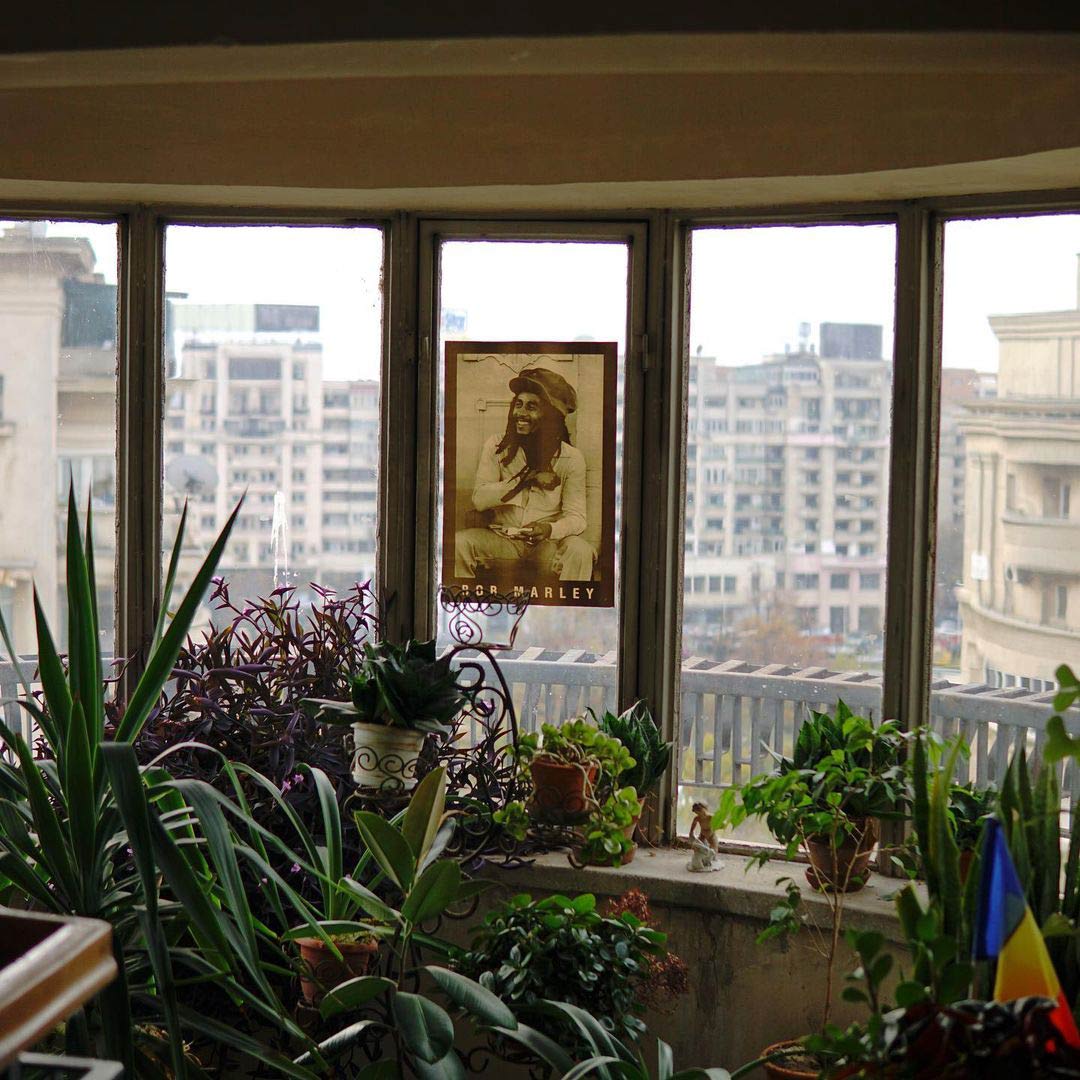
VISUAL PRESENCE IS SUPER IMPORTANT
Many of Radio Alhara’s listeners will undoubtedly have first arrived at the station via its Instagram, where a beautifully curated selection of images runs alongside the station’s distinctive graphics and logo. Characteristic of the project’s fluid, ad hoc spirit, of people coming together and pieces falling into place naturally, this visual identity came about quickly, the result of a phone call. “At the very outset of setting up the station we asked two graphic designers, Jaber and Hussein, to work on the logo. We were basically on the phone and while we were on the phone they were developing the visual identity,” said Elias. “And it worked super well because it opened different possibilities of communicating, it’s not a static visual identity, it’s something that is totally open, and has a lot of degrees of freedom. Though it’s true that the radio is essentially a voice, its visual presence is super important.”
Radio is a tool to communicate
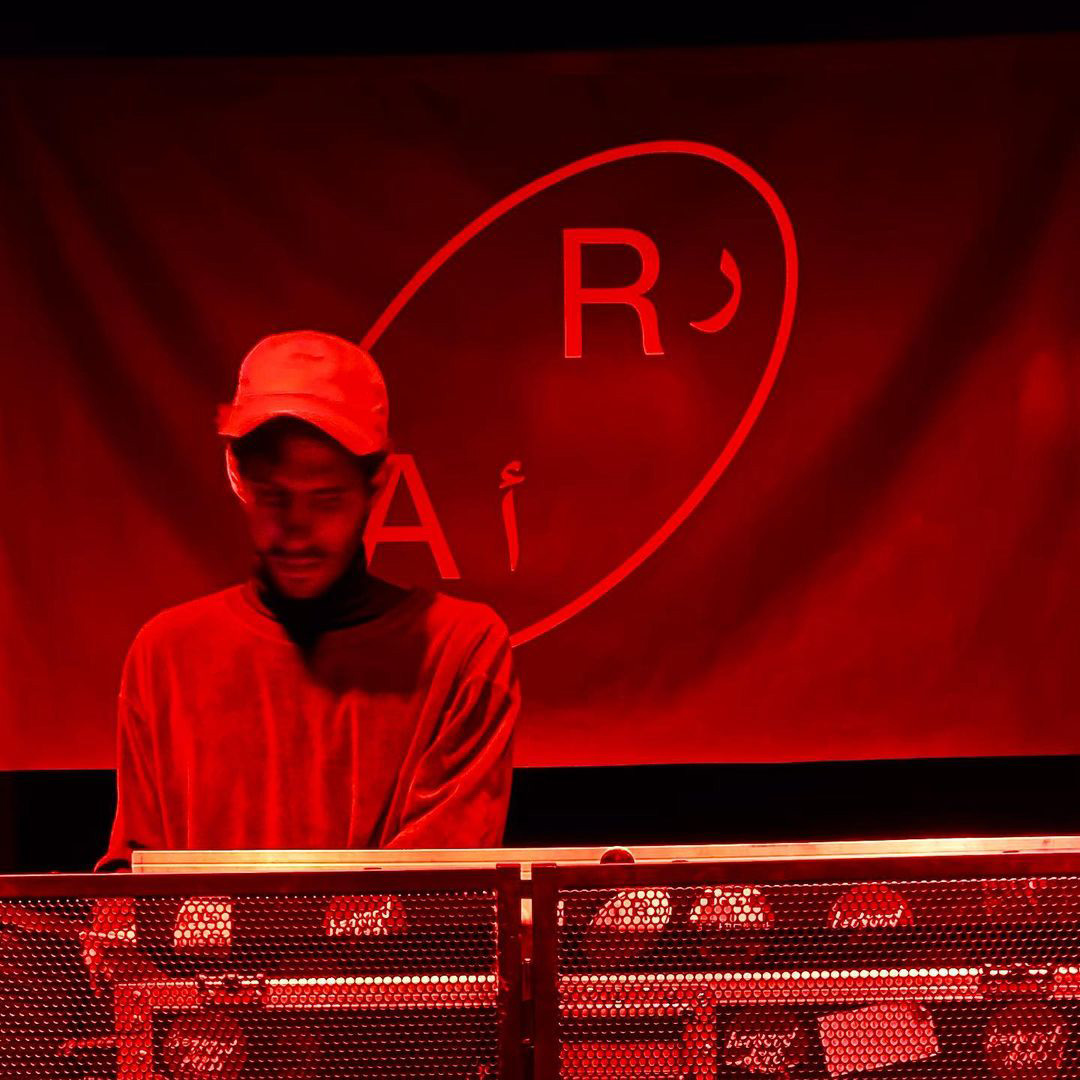
TAKING ADVANTAGE OF TIME
Though the global lockdowns of Spring 2019 proved to be the catalyst for Radio Alhara getting off the ground, the group see it less as a project responding to Covid-19, and more as a long-held idea finally able to be realised. “The whole project started during lockdown, but I think it’s something that we all wanted to do at some point. Lockdown meant that we, and the contributors too, had an amazing amount of time, so I’d say that it’s a project that was born in the timeline of the lockdown but we don’t really define it as a project that came from lockdown,” said Elias. “It took advantage of the time available during lockdown, but it’s a project that we eventually would have done in other circumstances.”
Fil Mishmish
The group first made T-shirts back in summer alongside their Fil Mishmish initiative. “The idea for creating our first T-shirts came from our Fil Mishmish project,” said Mothanna. “During the summer Israel decided to do a totally illegal annexation of land in Palestine and we wanted to react in a certain way, and we thought that in the frame of the radio, the most powerful way would be to create this massive online protest. We invited around 80 DJs and sound artists from all over the world to be part of it.”
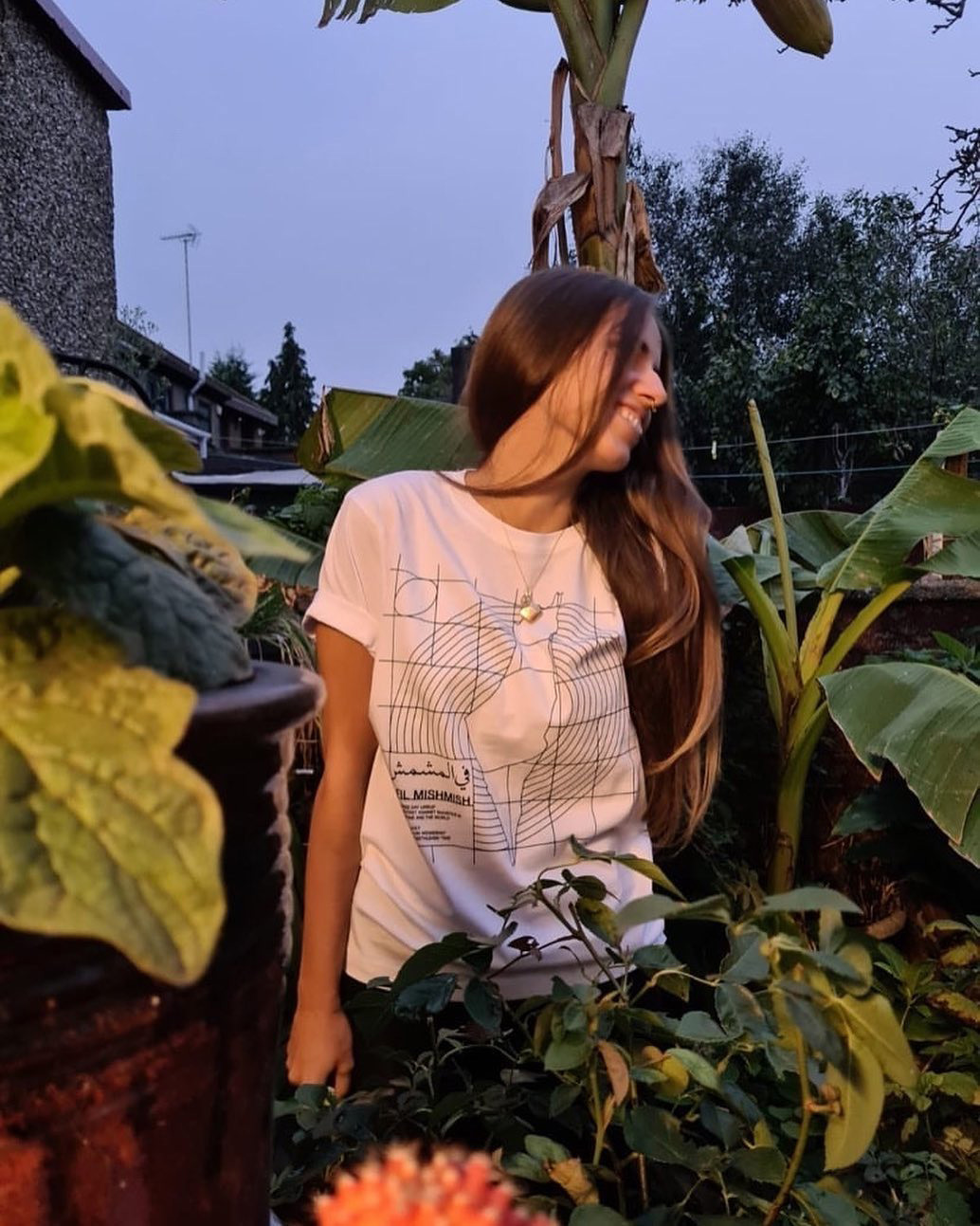
“When we decided to create these T-shirts afterwards, the idea was to raise some money to cover the basic expenses of the radio and give the rest of the money to charities. But then the disaster happened in Beirut, and we decided just to give the entire amount to support people there that are really in need.”
BEYOND PRECONCEIVED IDEAS
Though Radio Alhara broadcasts from a part of the world that’s oft seen through a very politicised lens, for the group the station offers a way of adding more nuance, and beginning conversations that aren’t strictly political. “For us it was a way to go beyond preconceived ideas of contextual politics, the idea of using the radio is to transmit a voice that will resonate throughout the globe,” said Elias. “I think one of the things that really works well, for example if you look at the Fil Mishmish campaign we have DJs like Nicholas Jaar. The set that he worked on is 13 minutes, in which he talks about massive injustices and the control of water in Palestine, and for that set we had like 10,000 listeners, who came to listen to Nicholas Jaar because they appreciate his music, but they were also listening to stories about injustices in the world. It means the radio becomes a tool to communicate and reach out.”
“The thing is, we live in a very politicised area of the world, we grew up with it, and politics do rule sometimes, but it’s not one of the main missions of the radio.” added Mothanna. “Palestine is always viewed in a certain way in the media, and people maybe have a certain image. So it’s nice to just come out in a different light.”
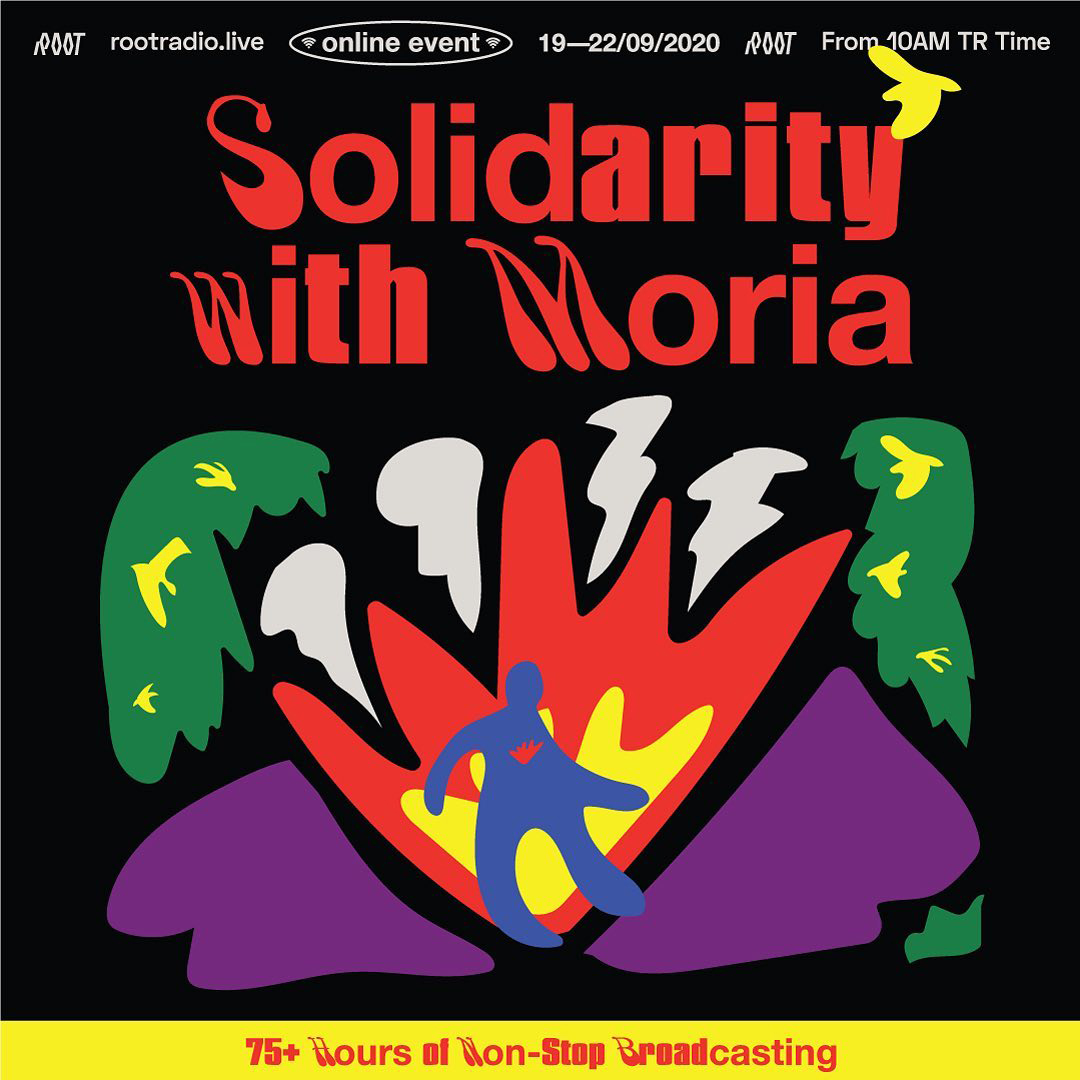
Alhara means neighbourhood
“I agree with the guys, I think that the radio is not at all political, but it’s a radio that collects a certain number of stories that are very personal to each and every listener and producer,” said Yousef. “The fact that all of these stories are coming together, this is the whole idea of the radio, that it’s not about one powerful message, but a lot of small anecdotes that make a bigger story.”
“That’s why the future of Radio Alhara is, not limited, but unexpected in a way, because it keeps on growing according to whoever plays a set, what story they are telling us, and what is happening around us. Alhara means neighbourhood, and it’s about what happens in your neighbourhood, and the neighbourhood of each and every producer on the radio.”
Read More: Bridging The Gap With WAVLNGTH



